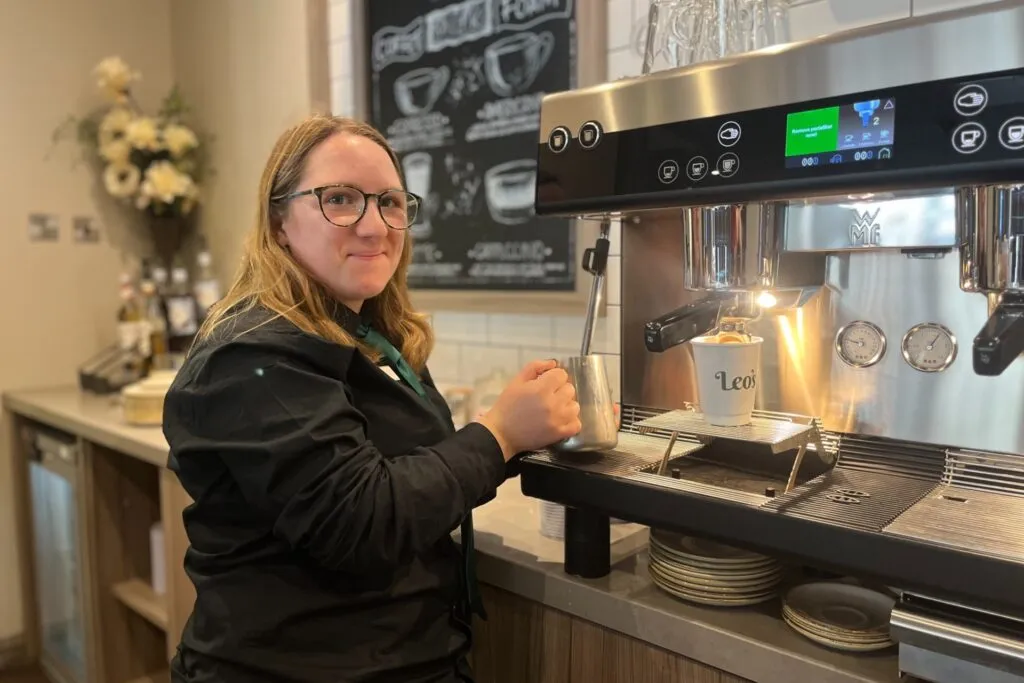Oxfordshire CC’s work is delivering meaningful employment for people with long-term health issues and/or special educational needs and disabilities, writes Will Gardner, employment team manager at Oxfordshire CC.
Objective: Develop sustainable local employment outcomes for people with long-term health issues and/or Send, overcoming the geographical and economic landscape, and a reluctance by some employers to recognise the potential of Send job seekers.
Timescale: Three years
Cost to authority: Total delivery costs per year: £325,800. We receive average funding per intern of £9,213 per year from the Department for Education
Number of employees working on project: Six employment advisors/employment support workers, and a contract delivery manager.
Outcomes
Increasing the number of young people gaining meaningful paid employment at the end of their internships
Increasing the number of Oxfordshire based employers participating in our supported internships scheme
Reducing and ideally eliminating common misconceptions about the work potential of those with long-term health issues and/or special educational needs.
Officer contact: will.gardner@oxfordshire.gov.uk
Oxfordshire CC’s employment team faced a challenge: how to deliver an effective supported internship model in a county with many rural communities and few major employment centres.

Will Gardner, employment team manager at Oxfordshire CC
Our overall objective was to develop sustainable local employment outcomes for people with long-term health issues and/or special educational needs and disabilities (Send), overcoming the geographical and economic landscape, and a reluctance by some employers to recognise the potential of Send job seekers.
We adapted a supported internships programme that combines education opportunities for young people aged 16-25 with an education, health and care plan (EHCP), allowing them to work and study at the same time.
These programmes are well established and run by other local authorities. However, while they successfully utilise larger employers to offer a range of opportunities really well, they don’t always work in more rural settings like Oxfordshire.
To overcome these limitations, our supported internships are structured to offer bespoke solutions with individual employers, and as they are often small businesses it is very rare for any one employer to have more than one internship placement.
Smart internships
Networking and building relationships with these potential employers is all important in opening doors for the interns.
We’ve given the young participants the skills, experience and confidence to secure meaningful employment
Supported internships normally last for one year and include unpaid work placements of at least six months. Wherever possible they support the young person to move into paid employment at the end of the programme, which includes the chance to study for relevant substantial qualifications, if suitable, and English and maths to an appropriate level.
We also embrace the Smart internship, an extension to the local supported internship offer, allowing young people not currently engaged with learning providers, in work or in training, to access a pathway to employment.
Smart delivery is refocused on engagement, positive relationship building and progression into work placement and eventual employment, and includes the offer of a second year of support where necessary to achieve these goals.
Meeting individual needs
Oxfordshire supported and Smart internships are delivered by experienced practitioners following a five stage supported employment model adopted as a quality benchmark by the British Association of Supported Employment. The model provides a consistent quality framework for best practice.
Currently we hold supported employment quality framework ‘good’ accreditation and we’ll be undergoing supported internship quality assurance framework in the next academic year.
Our Smart internships are delivered in partnership with Activate Learning, using their knowledge and expertise in applying digital technology in education, an important learning tool for the young people.
Our college partners provide learning opportunities to meet the needs of each individual as part of a once weekly college-based programme.
As the supported employment provider, we:
Assess individual needs in the workplace
Match the individual to a work placement that meets their needs and offers a reasonable chance of employment
Prepare for work, including travel support, liaison with other key people, employer engagement
Provide ongoing support and coaching in the workplace throughout the life of the internship
Record and assess the individual’s development and act as link to the college
Transition the individual to work or to other ongoing support.
Part of the offer is that no individual is left without support at the end of the programme.
Regular support
We also act as the educator, enlightening employers on the often straightforward and cost-effective steps they can take to adapt their workplace.
Examples include arranging for an adjustable desk for an intern with cerebral palsy as they often work in a reclining position to avoid back pain, and negotiating work patterns with regular short breaks, helping the individual concentrate on tasks more effectively.
Regular support from job coaches, and paying for taxis when public transport is unavailable or impractical, can be funded through the national government’s access to work fund, meaning necessary adjustments and provisions often don’t cost the employer a penny.
The ideal outcome from the internship is the offer of paid employment, but not all internships will achieve this. Other outcomes include:
Building CV experience and demonstrating the person has a willingness to work
Challenging negative perceptions about people with learning disabilities and other disabilities
Changing the perception of a young person’s family that the person can work
Improving skills in English and maths that enable the young person to be better prepared for work, including handling money, interacting with the public, and practicing interview skills
Becoming independent travellers.
We are proud of our success rate – let me rephrase that, we are proud of the success and achievements of the supported internship students – benchmarked against the national average.
Busting misconceptions
Between 2022 and 2024, Oxfordshire CC gained around 50% paid outcomes for internships (i.e. those on a supported internship gaining paid employment at the end of it). In 2024-2025, we are predicting it to be between 60%-65% paid outcomes.
The national average for internship students securing paid outcomes at the end of a programme is around 30%, so here in Oxfordshire we’re well above the national figure.
Going forward, we want to shift towards even greater emphasis on busting common misconceptions about the work potential of those with long-term health issues and/or Send. Seeing their capability, not focusing on a disability, for example.
We are addressing this in a very proactive and empowering way for the young people themselves, inviting them to share their internship experiences and successful outcomes with local newspapers and broadcasters.
One of these stars is Sorcha Calvert, transformed through a tailored EHCP alongside a supported internship from a self-doubting teenager – grappling with dyslexia and dyspraxia – into a paid employee at the Leonardo Royal Hotel in Oxford. Sorcha also has an interest in the media and witnessing her enthusiastically being interviewed by BBC TV South Today has been uplifting for our whole team.
She said: “The council’s brilliant internship team explained to the manager how well I was progressing at college, emphasising my willingness to learn and that I’m a natural people person. Here I am, three months later, the internship has been such a success that I’ve been taken on permanently.”
Our supported internships project has involved innovation, working with our brilliant education partners and local businesses to overcome the limitations of a rural geography. We’ve given the young participants – many facing more challenges than the average job seeker – the skills, experience and confidence to secure meaningful employment, and a first foot on what we hope will be a successful career ladder.
I hope what my team has achieved can be replicated by our professional counterparts in other local authorities, particularly where major businesses are few and far between.
